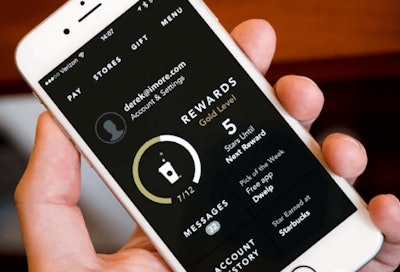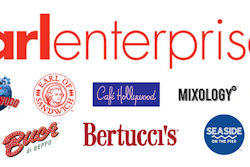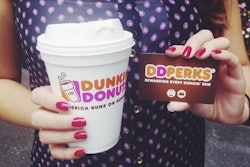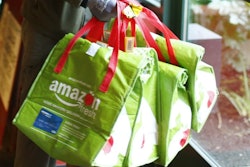
A new coffee shop in Providence, Rhode Island is asking customers for their personal data in exchange for a free cup of coffee. Shiru Cafe workers ask for customers' names, birthdays, phone numbers, email, education and professional interests during each transaction, and no money is accepted.
Personal-data-for-goods exchange may seem straight out of a dystopian novel, but it's become a regular occurrence in 2018, with nearly every restaurant, social media platform and business attempting to collect your personal information. The only difference with Shiru is that they're upfront about it.
Your data has become valuable to restaurants. Eater reports that businesses are eager to obtain your information because it is a way to stand out in an extremely competitive market. Tracking their customers' data is a way to figure out what they want from their restaurants.
It's no longer whispering your email address to the cashier to receive coupons that will track your data, as smartphone apps, location tracking and free WiFi sign-ins are creating individual customer profiles that can track anything from your coffee order to what time of day someone typically comes into a store, Eater reports. Using this data, restaurants can determine exactly what their customers want and if they need to create dishes or tweak existing ones in order to better tailor to them.
Eater reports that TGI Fridays has combined customer data collection and analysis with artificial intelligence to double its to-go business over the last year. The restaurant chain can send push notifications to a customers phone from their app right when they're running for an errand.
While it may be concerning that the internet has all this information on you, it is important to remember that as a diner, you are offering your personal information on a voluntary basis. Restaurants can gather your data by using insights provided from third-party vendors, getting customers to sign up for exclusive emails or surveys that offer a perk. Signing into a location's WiFi is another way that restaurants can gain your data. According to Eater, Starbucks asks users to submit their full name, email address and zip code before allowing access to their WiFi. Once signing in, the company then has the information to send promotional offers, effectively getting you back in store to purchase their products.
An InMoment report found that 75 percent of customers find personalized marketing to be unsettling, while 40 percent of brands admitted to being creepy about it. However, tailoring ads to your preference, or being creepy, doesn't necessarily mean that the consumer is in danger. Eater reports that consumers don't have to worry about eateries having their data anymore than they would for other businesses or social media. However, in the long-winded user agreements it may say that the company has the right to share or sell your personal data to other organizations. Additionally, data breaches do happen. Panera suffered from a hack earlier this year, and thousands of customers' personal information was leaked online.
For now, though, restaurants asking you for your birthday is pretty safe. You may just get a free treat out of it.

















